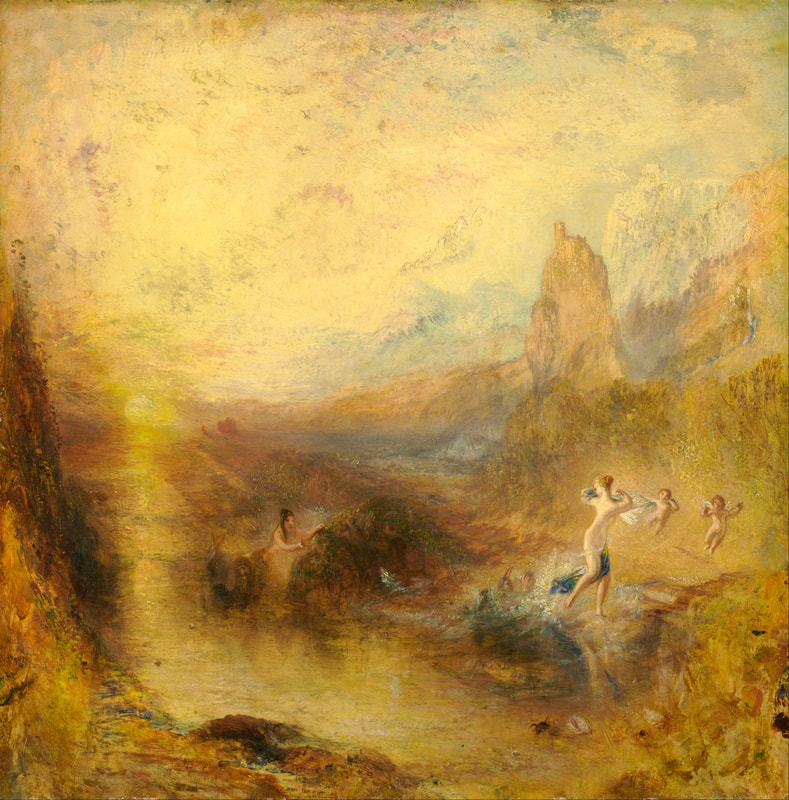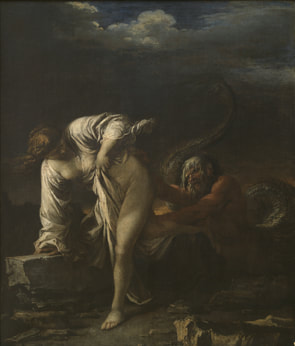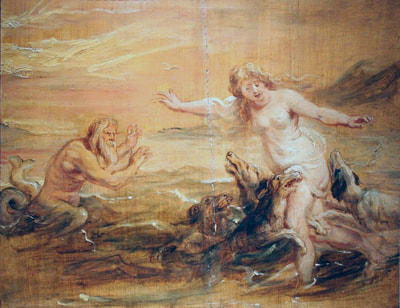Glaucus and Scylla
Glaucus and Scylla - J.M.W. Turner (1775-1851) - Kimbell Art Museum
Date: 1841
Medium: Oil on panel
Dimensions: 78.3 x 77.5 cm
Medium: Oil on panel
Dimensions: 78.3 x 77.5 cm
|
Painted in 1841 by J.M.W. Turner Glaucus and Scylla is a painting composed of oil and panel. The painting depicts a scene from Greek mythology that is most famously told in the Ovid's Metamorphoses.
Glaucus and Scylla shows the nymph Scylla fleeing from the advances of the sea god Glaucus. Eventually Glaucus would go to Circe to obtain a love potion, but Circe provides not a love potion but a draft that turns Scylla into a monsters, for Circe herself is in love with Glaucus. More information about Scylla can be found here - (website opens in new window) J.M.W. Turner |
|
Born: 23 April, 1775; London
Died: 19 December, 1851: London
Nationality: English
Art Movement: Romanticism
Painting School: Royal Academy of Arts
Died: 19 December, 1851: London
Nationality: English
Art Movement: Romanticism
Painting School: Royal Academy of Arts


